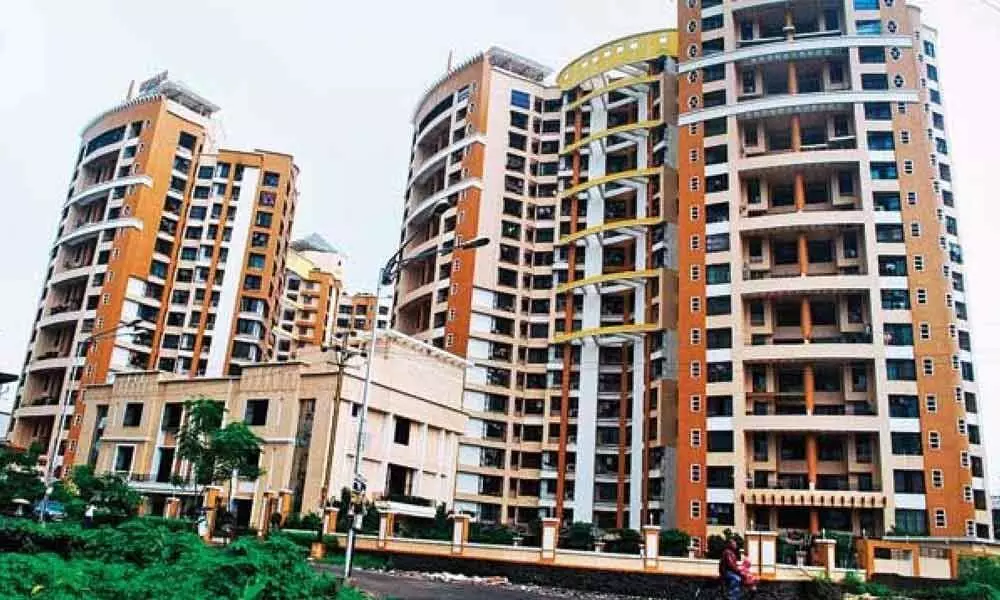How to address housing challenge?

Owning a house is a dream of every Indian. Unfortunately, lack of investments in real estates, slowing economy and sluggishness in fund mobilisation has become a challenge for the real estate industry and the government.
Owning a house is a dream of every Indian. Unfortunately, lack of investments in real estates, slowing economy and sluggishness in fund mobilisation has become a challenge for the real estate industry and the government.
As a result, these issues are coming in a way as a hindrance for "Housing for All", one of the ambitious housing projects of the Government of India.
As per the government estimates, India will need an investment of around Rs 50 trillion or Rs 50 lakh crore ($777.73 billion) to build up infrastructure by 2022.
This will complement one of the crucial elements, developing the real estate sector to support government's mission for `Housing for All' by 2022.
But to achieve this gigantic task, India's real estate industry requires about $330 billion (Rs 24.75 lakh crore) of construction funding to deal with the shortage of housing.
However, the bottom line remains as to how India is going to address its Housing challenge. First and foremost, it requires the zeal to work towards the goal for `Housing for All' which requires adequate policy intervention.
Second, creating a constructive policy and subsequently working on it and addressing towards meeting the goal for Housing.
The most critical part, which the government needs to promote the construction of housing, is to explore more ways to provide help for constructing houses at villages and small towns. This will arrest the exodus of population from rural areas to urban cities.
Robust policy, to meet the housing demand
A robust policy for the real estate sector, ensuring RERA, the Real Estate Regulatory Authority an empowered institution that can firmly look into the interest of both home buyers and builders.
This will help create an ambiance conducive for adequate housing in India. All these must help to meet the growth of urbanisation in India and address issues through comprehensive and integrated development of institutional, social and economic infrastructure.
In addition, to push to affordable housing, reforms in Benami Transactions Act and activating various national and state-sponsored housing schemes like Pradhan Mantri Awas Yojana (PMAY), Pradhan Mantri Gramin Awaas Yojana, Rajiv Awas Yojna will make India as an investor friendly market for global investors.
A change in perception towards builders and developers by RERA, government and other stakeholders, which act as a facilitating agency is crucial for the success of the real estate market.
Facilitating Public-Private Partnership (PPP) initiatives for affordable housing, introduced in September 2017 is key to fasten the process of `Housing for All' and making it a reality.
More Smart Cities
More smart cities are required to be pushed under the Smart Cities Mission. At least 100 cities that have got a mandate for an upgrade and developed as smart cities are currently under the Smart Cities Mission. The Smart Cities programme involves a capital outlay of Rs 2.04 lakh crore.
According to the data available by the Ministry of Housing and Urban Development, projects worth Rs 50,221 crore are under implementation, of which projects worth Rs 9,981 crore are complete.
These cities being upgraded must ensure to develop modern technological and digital infrastructure like Wi-Fi hotspots and enhanced air connectivity.
This will further fuel economic growth and aspirations of the people of the city and help in creating more jobs and opportunities besides contributing to its overall growth.
Increase capabilities involve newer technologies in the construction sector
Today, the construction industry in India is the 2nd largest contributor to Gross Domestic Product (GDP). To achieve cost-efficient mass production at a faster pace must involve innovations in alternative technology. Besides granting infrastructure status to affordable housing will be a rejuvenator for the real estate industry.
Ensuring adoption of new age advance technologies in the construction industry and creating a skilled workforce to take newer technologies at ease will help in the sustainability of the real estate sector.
The industry must look at the use of precast technology, where precast reinforced concrete planks are adopted, especially for affordable housing projects. In addition, Reinforced Concrete (RCC) door or window frames can be used instead of wooden door frames.
Interestingly, prefab technology for affordable housing will help in minimizing the time duration in building high rise residential and commercial complex.
More land availability
Availability of land has always been a core concern for developers and builders. This has led to delay in executing and expansion of housing projects across the country.
Today, cities and towns that are getting clogged due to lack of space and rising population and so there is a need for vertical growth, one of the solutions to mitigate the housing crisis.
Over one-third of the land in big cities and towns are owned by the government. The real estate industry looks at the government to help provide land availability at an affordable cost at ease to builders and developers besides keep the cost of housing under check.
(The author is Director, Eros Group)














